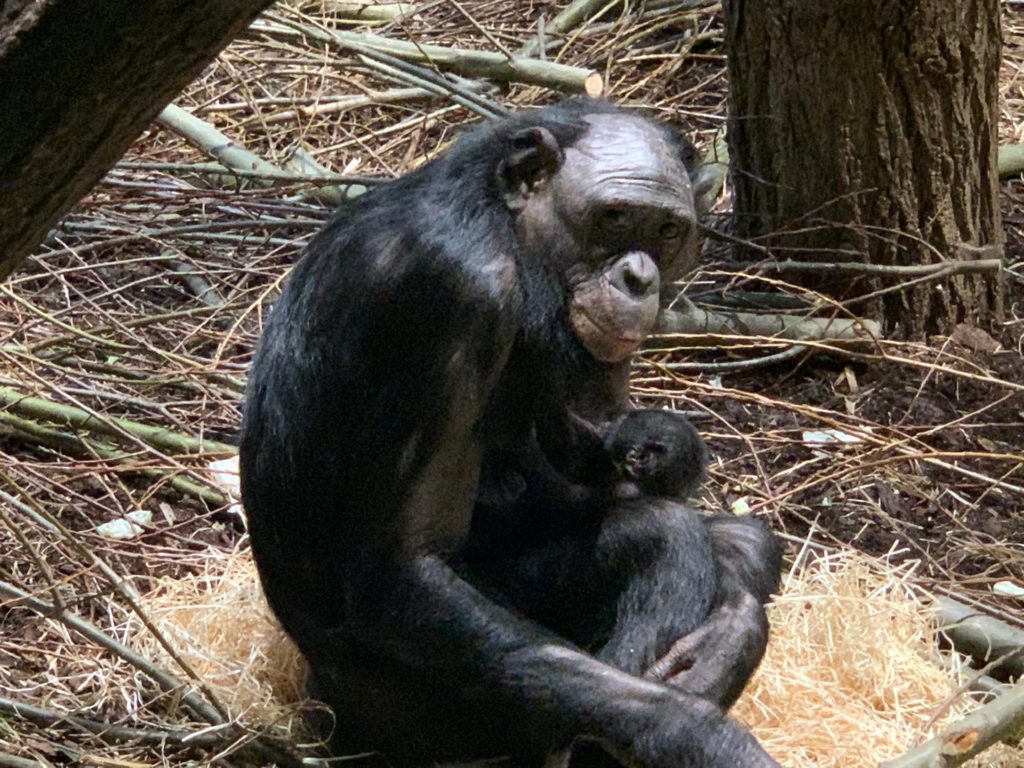The animal park at Planckendael near Mechelen has announced the birth in the early hours of the New Year of a new addition to the bonobo troupe, which now numbers 19.
The newcomer is barely visible at present, held close to mother Nayembi’s chest and closely surrounded by other member of the troupe.
That will continue to be the case in the coming weeks, the park said.
The baby has not yet been named. According to tradition, all newborns in 2021 will be given a name beginning with W, and in the case of the bonobos, the name will be Lingala or Swahili.
A new bonobo is all the more important as Planckendael has for more than 30 years been the European centre for the European Endangered Species Programme (EEP) for the bonobo, run under the auspices of Planckendael’s parent organisation, the Royal Society for Zoology in Antwerp (KMDA), which runs the city’s zoo.
Planckendael runs its own successful breeding programme, and also holds the international breeding book, which it uses to put together bonobo groups suitable for breeding in zoos across the world.
Because of the comparatively large group of bonobos at Planckendael, where they have their own extensive enclosure, it is possible to carry our behavioural research more easily there, by anthropologists, psychologists and other scientists.
The father of the newborn will only be known once a sample of its hair is taken for DNA analysis at the park’s own laboratory.
The bonobo, like other great apes, is endangered, with estimates of the number of bonobos in nature varying between 15,000 and 50,000. Bonobos are only found south of the Congo River. The animals are killed for their meat or caught and sold as pets. But the greatest threat they face is the destruction of the tropical forests in which they live.
Alan Hope
The Brussels Times

